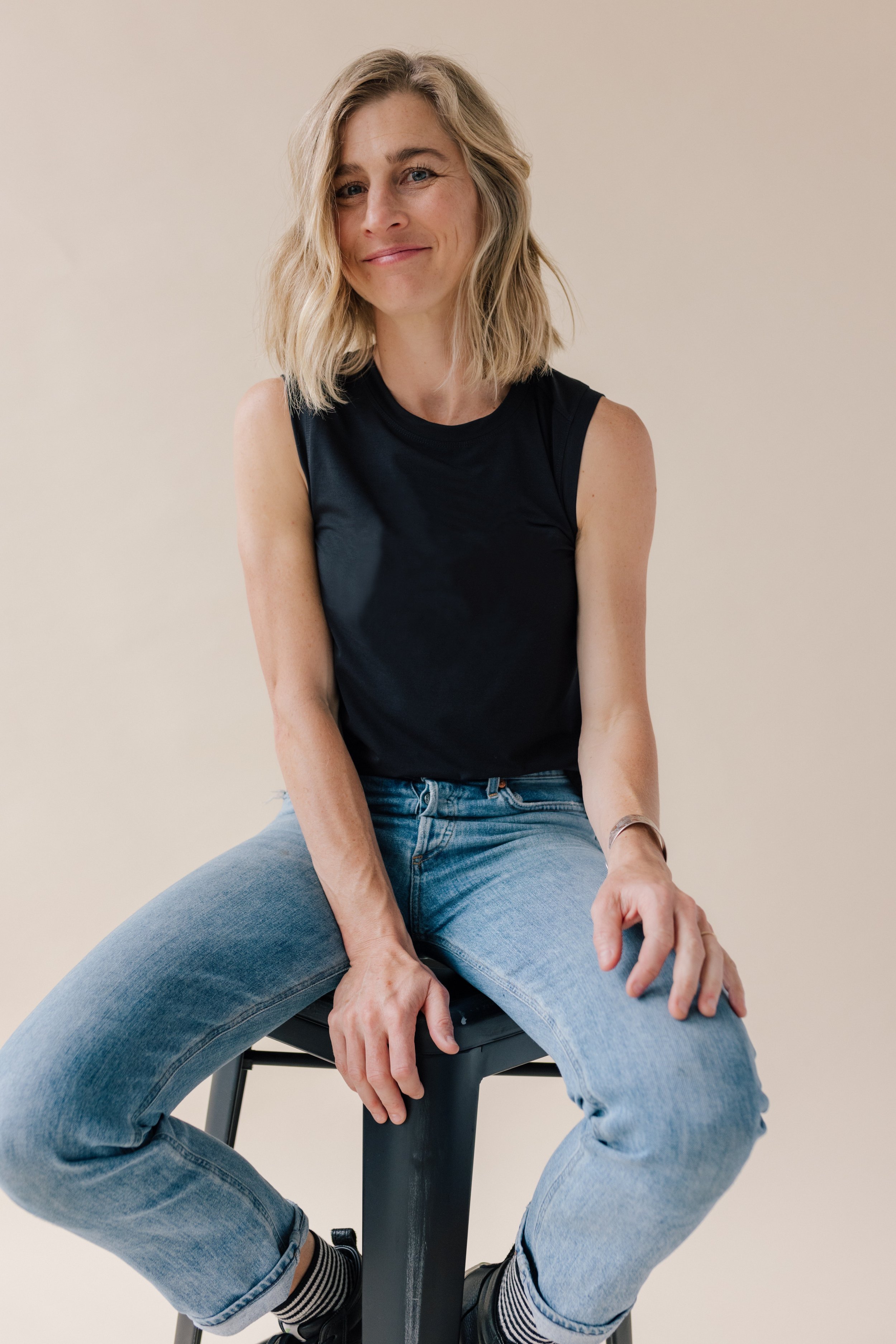Episode 249: Good for a Girl - A Woman Running in a Man's World (Interview with Lauren Fleshman)
Follow the Purple Patch Podcast at:
APPLE PODCASTS - SPOTIFY- AMAZON MUSIC - GOOGLE PODCASTS - YOUTUBE
℅: Ryan Warner/Oiselle
Matt Welcomes former professional runner, running coach, and author Lauren Fleshman to the show to celebrate the release of her autobiographical memoir, Good for a Girl: A Woman Running in a Man’s World.
Lauren details her new book which uses her personal experience and the challenges she faced as a collegiate and professional athlete in a male-centric environment, as a catalyst to bring about significant change in women’s athletics.
Matt and Lauren discuss women’s sports in a male arena and how to reframe the female experience in a way that is grounded in knowledge of the female body. They cover the taboo of female physiology embedded in the culture of the sport. Lauren dissects the toxic talk that hinders natural performance development, can lead to body dysmorphia, and can encourage disordered eating habits in athletes.
Matt and Lauren offer applicable tools for developing a foundation of support for female athletes as coaches, teammates, and loved ones, to help foster positive and healthy growth, improved performance, and longevity.
Whether you are a coach, a parent, a supporter, or an athlete yourself, this episode provides insight into the diversity of voices and experiences at every level of sport. It inspires a call to action to create an environment that accommodates every type of athlete and helps nurture a deep love for sport.
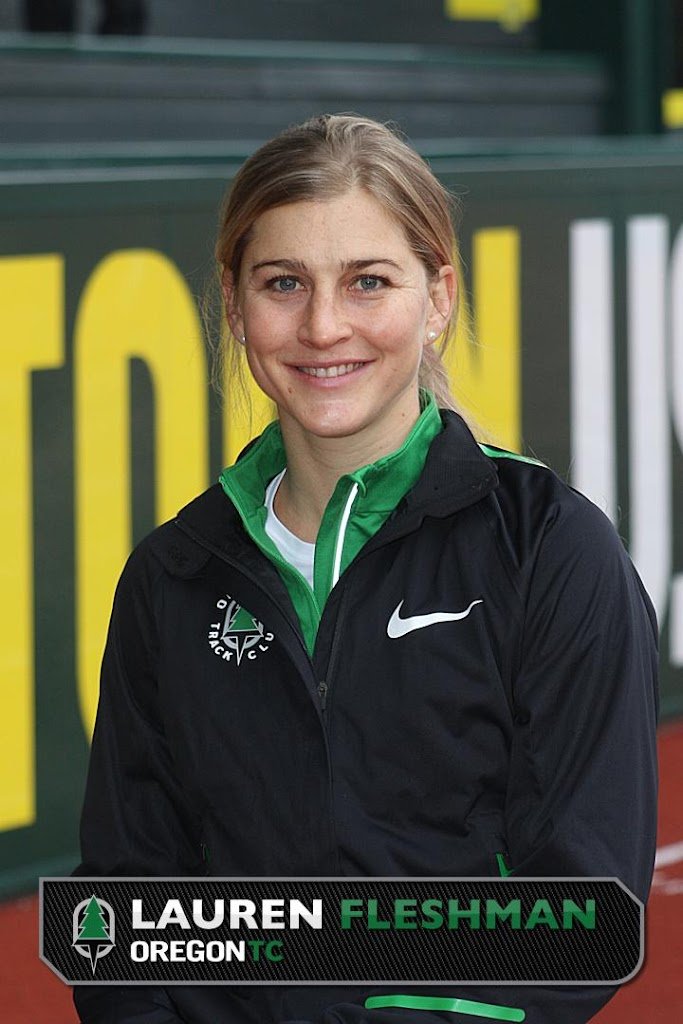
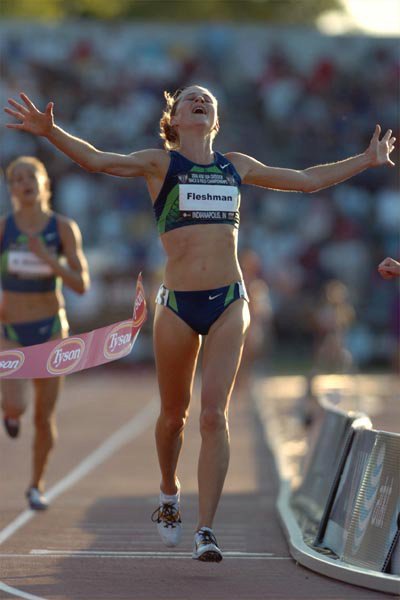
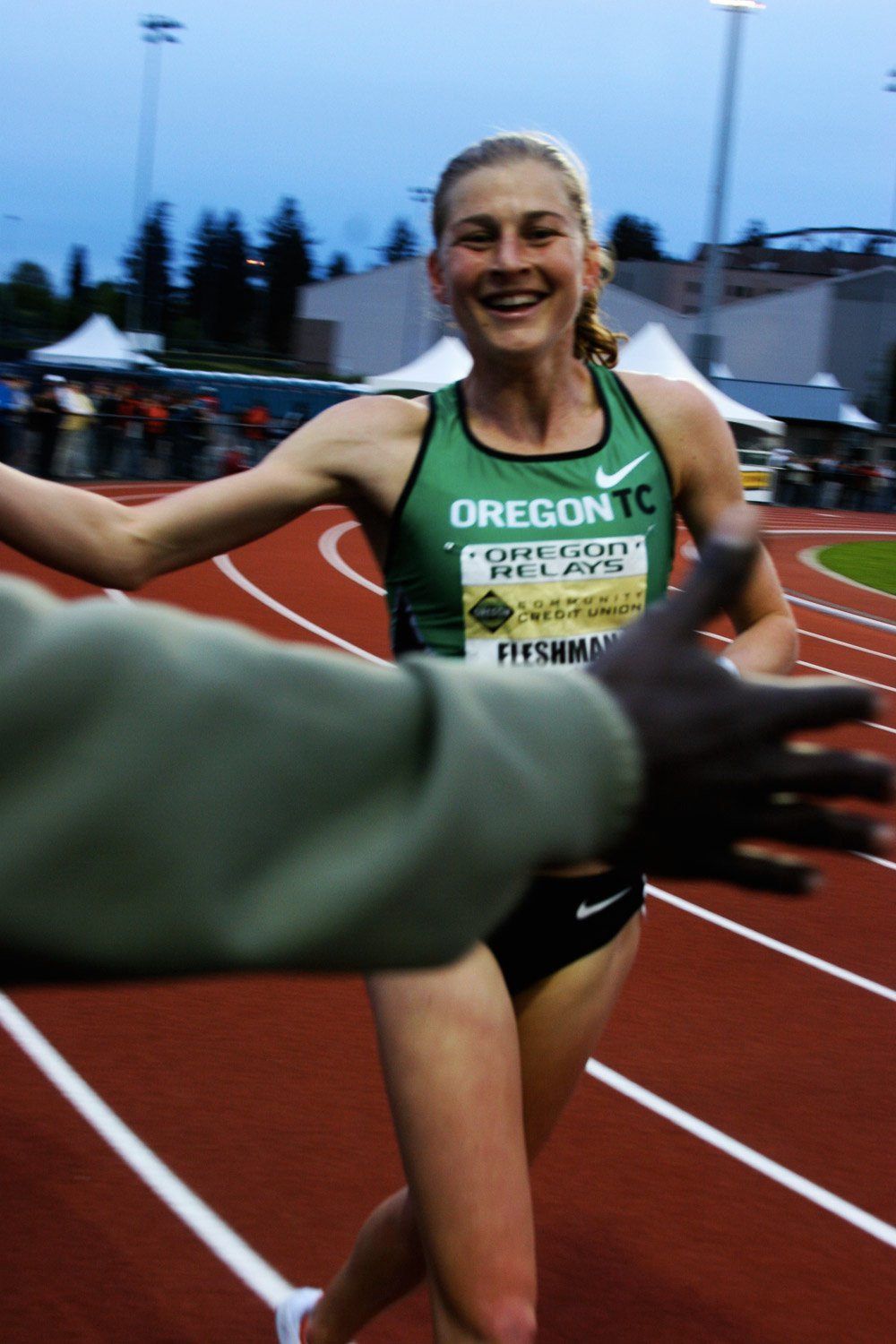
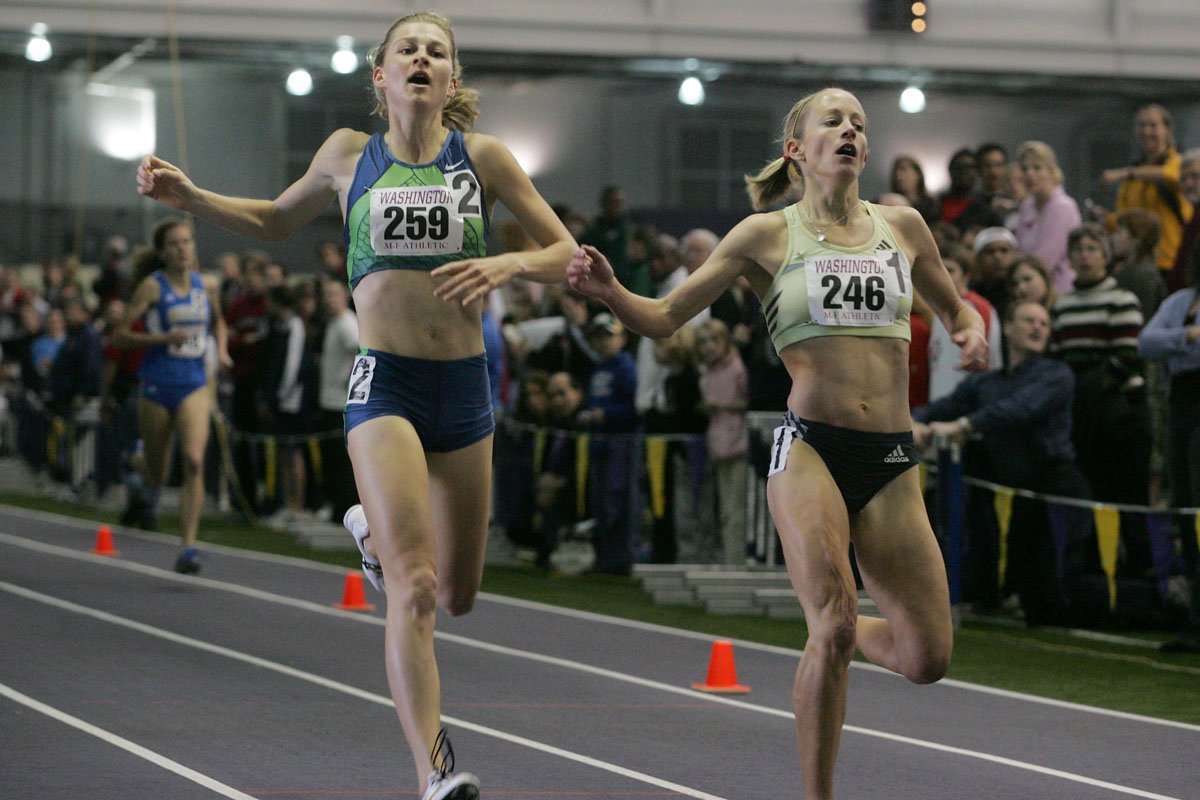
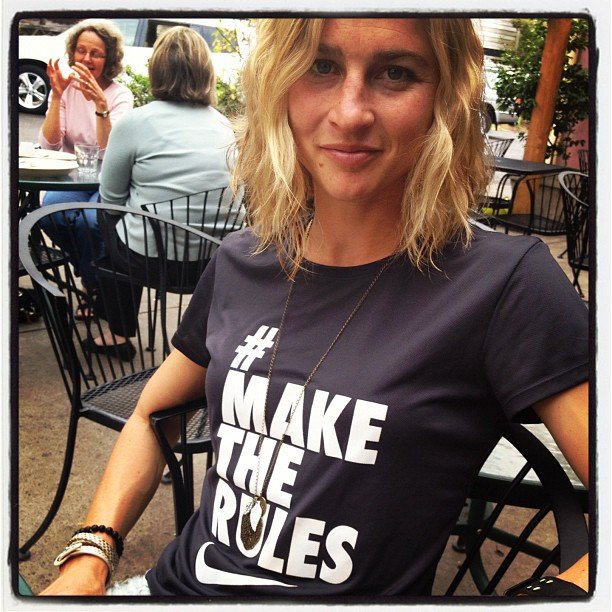
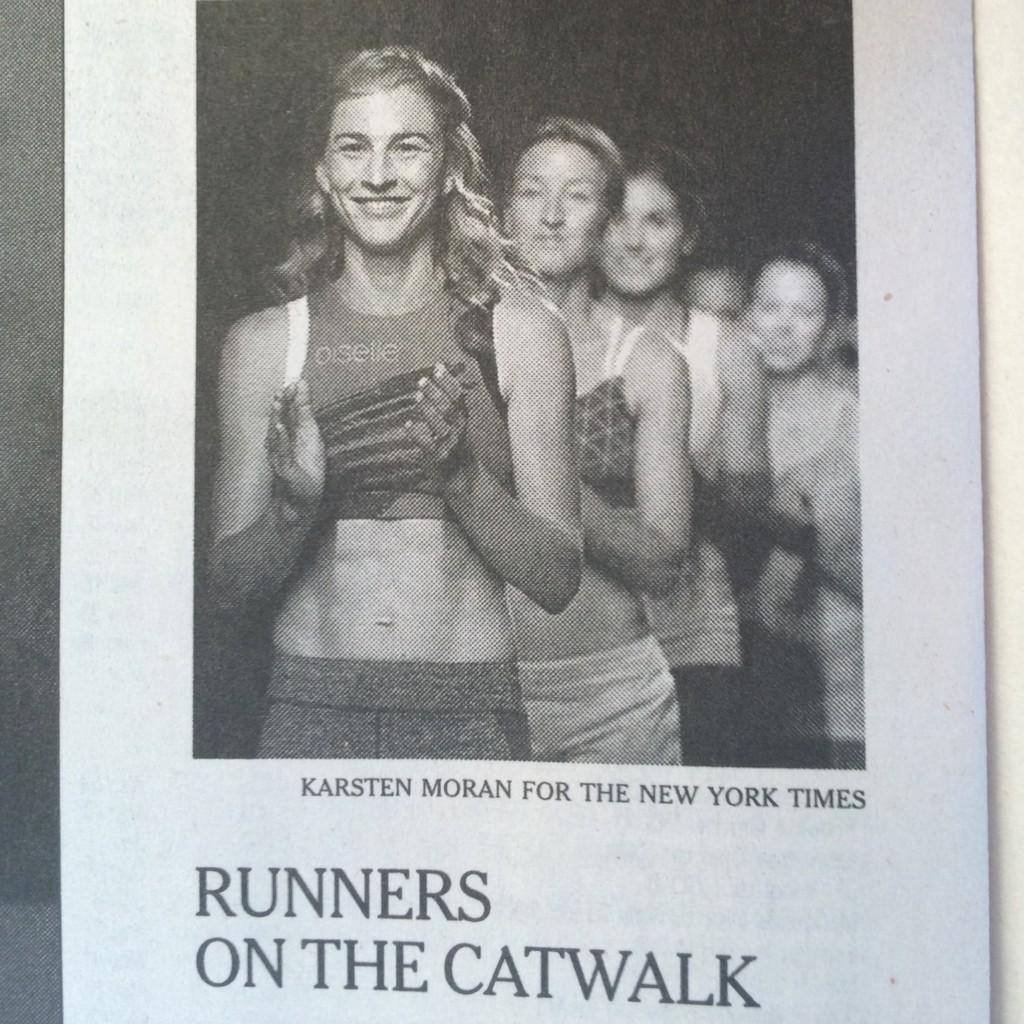

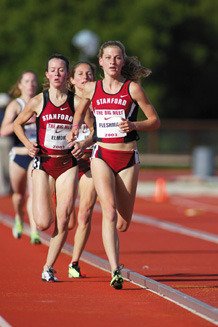

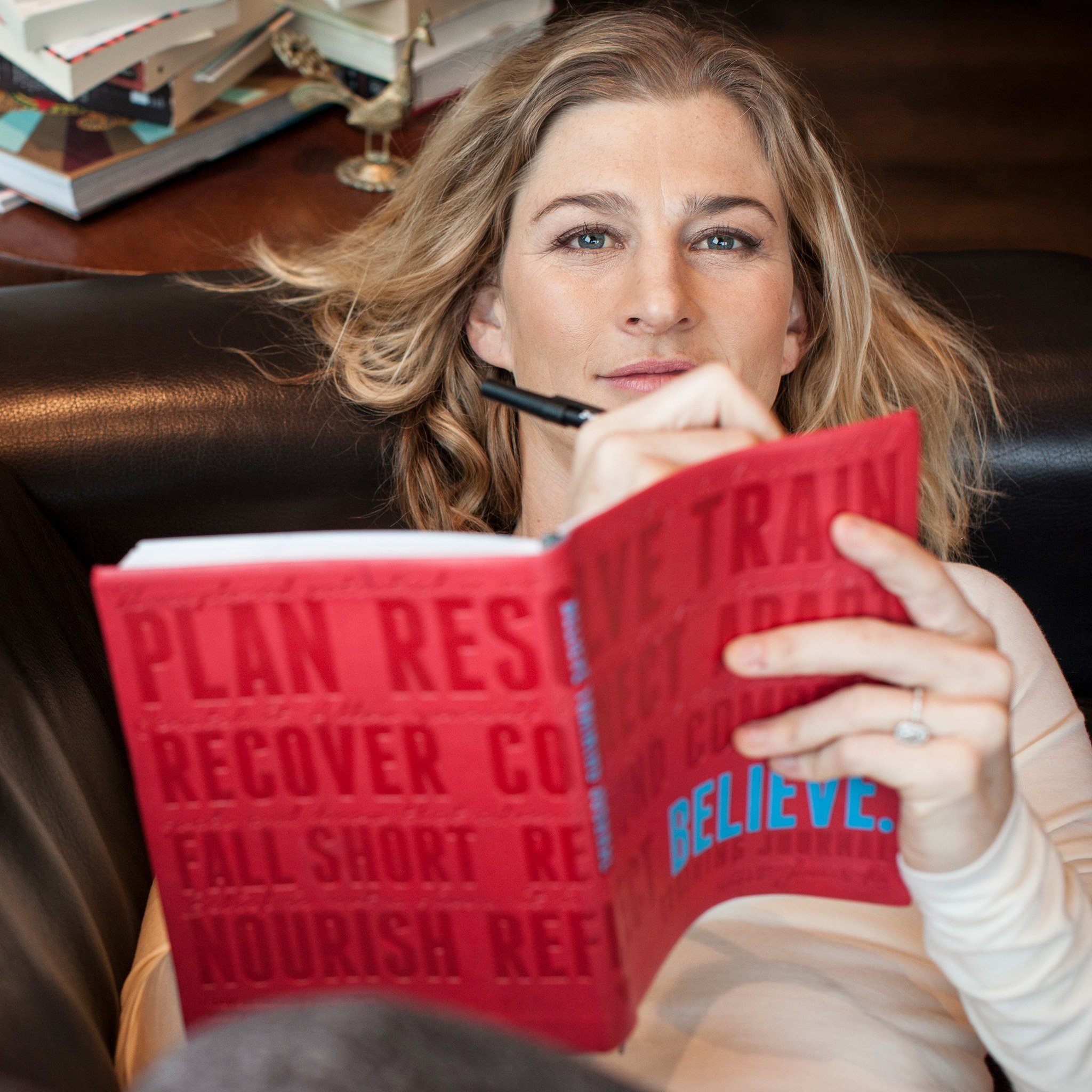
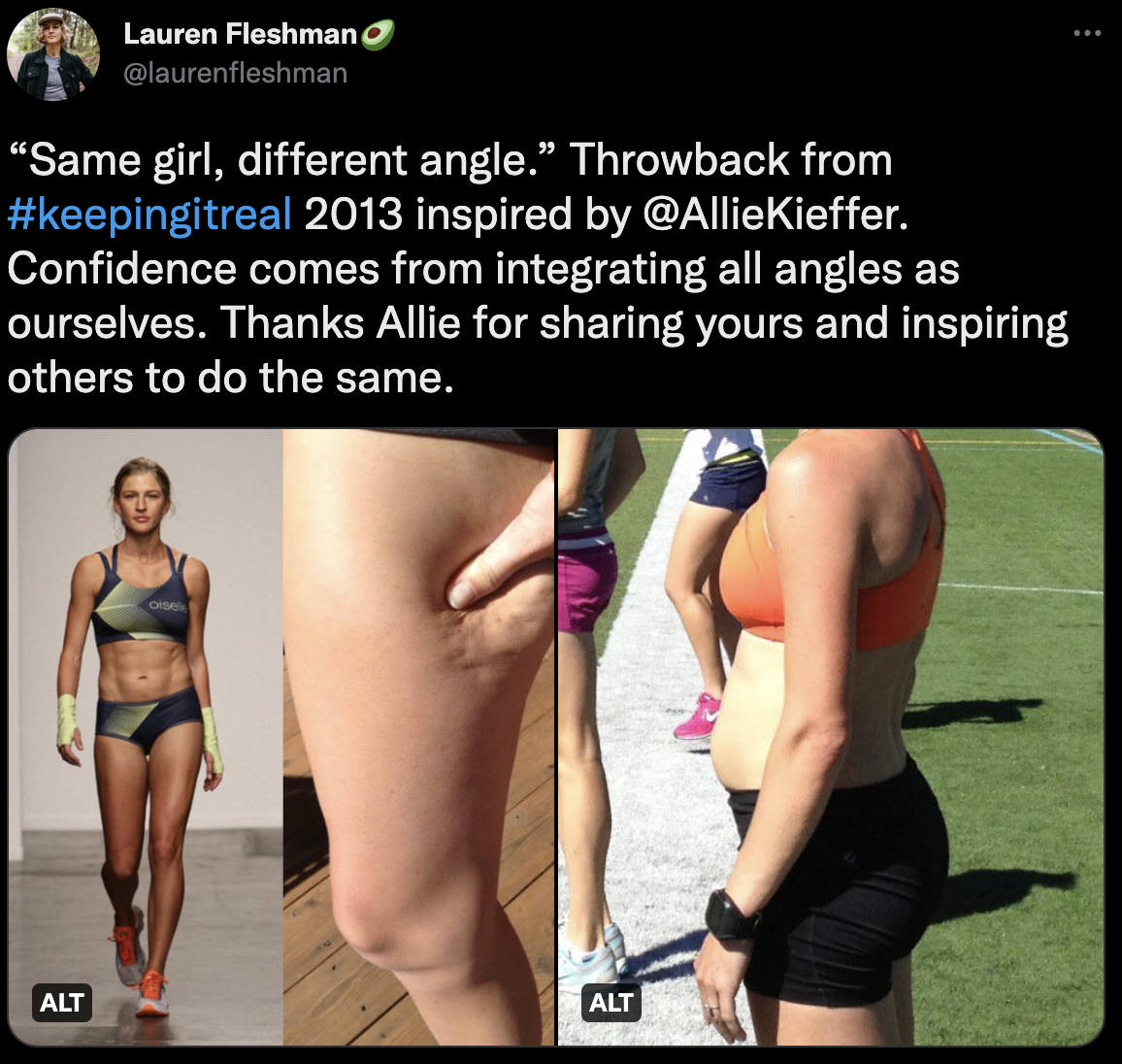
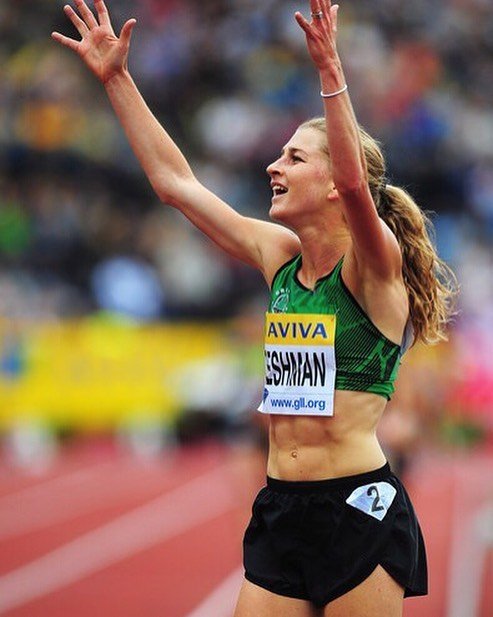
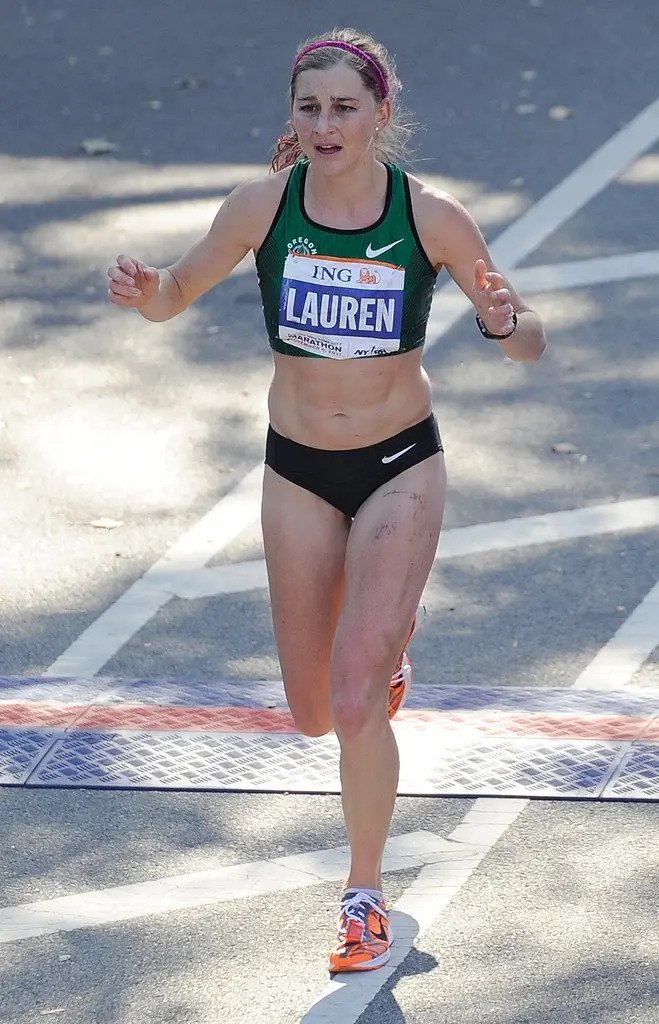
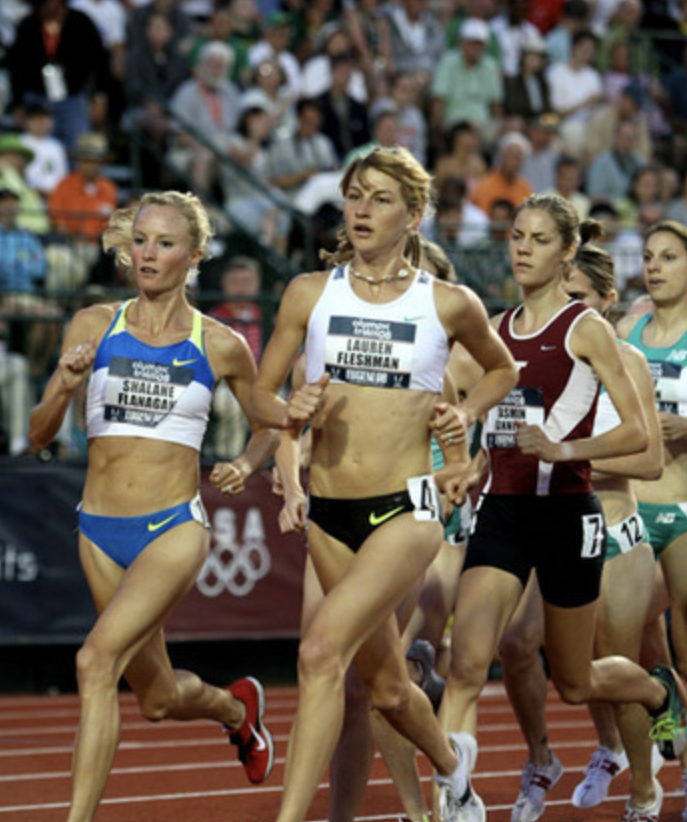
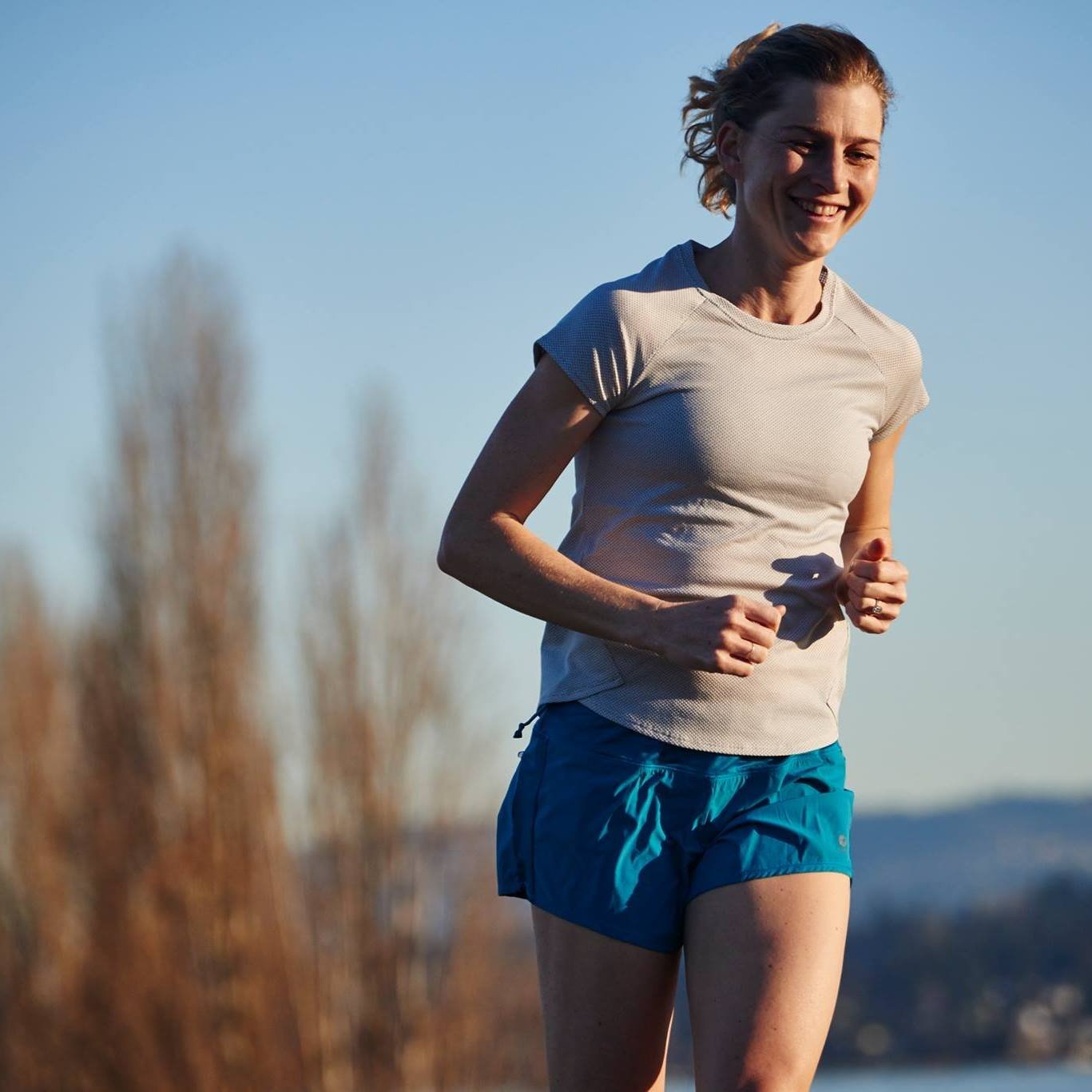
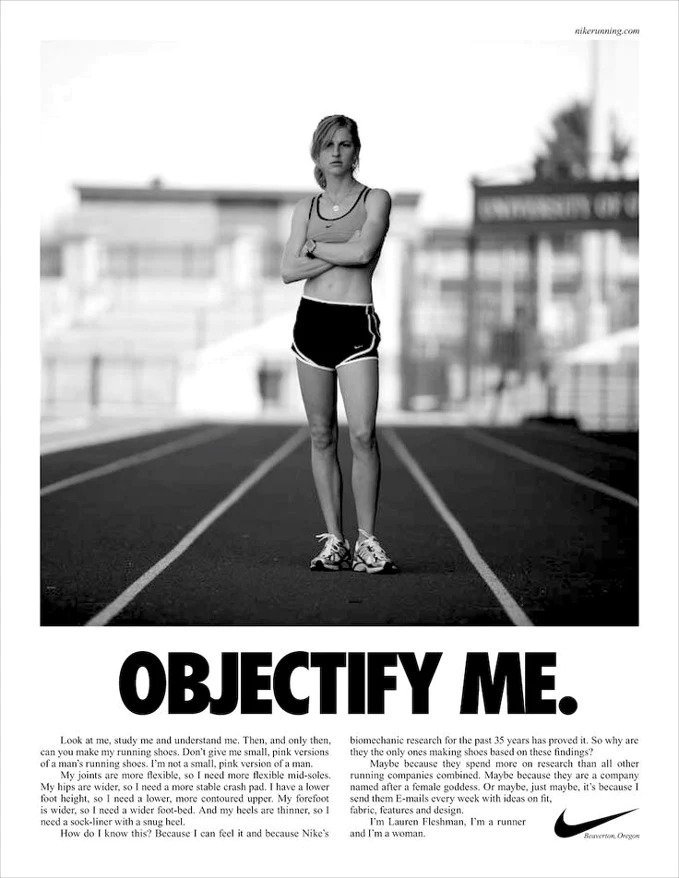
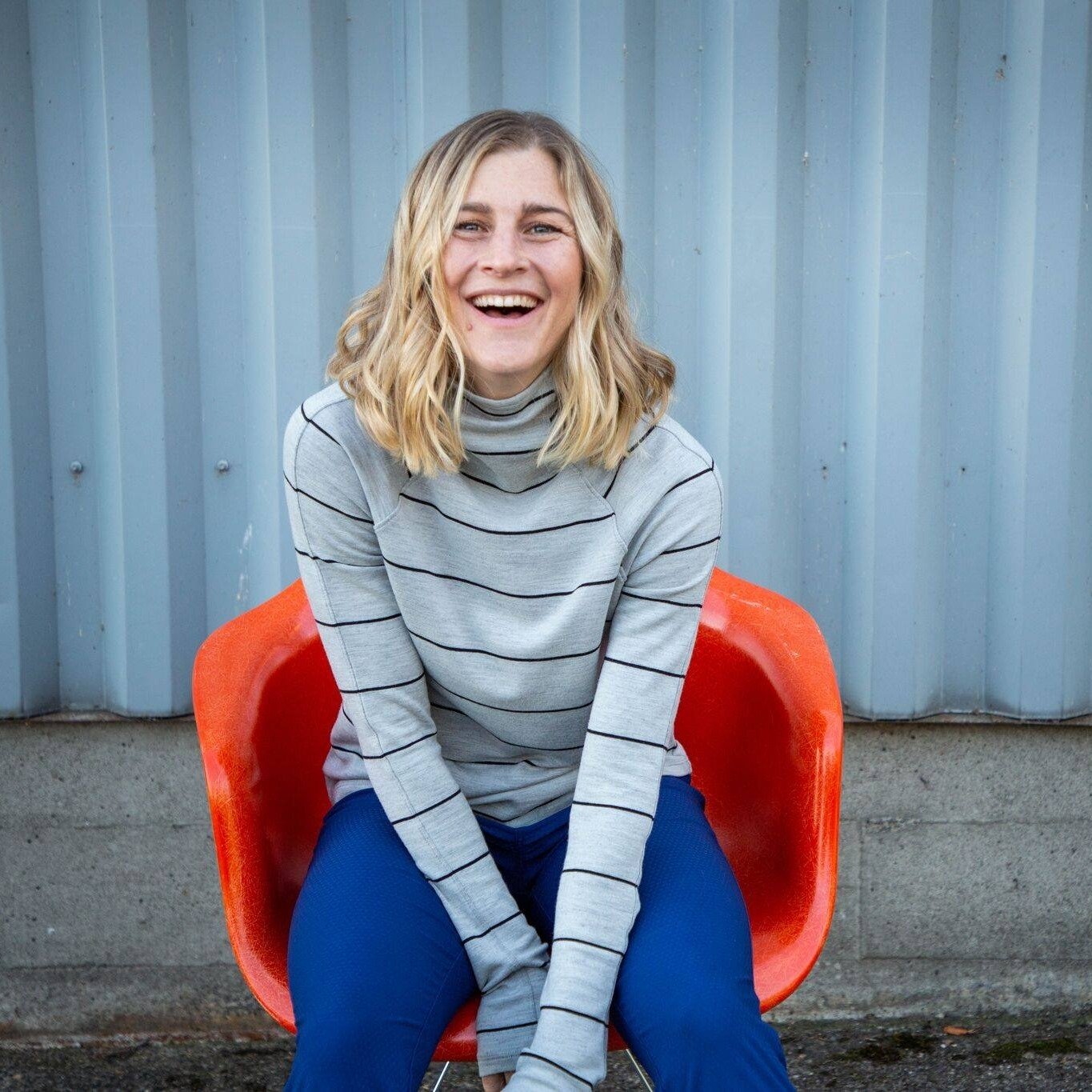
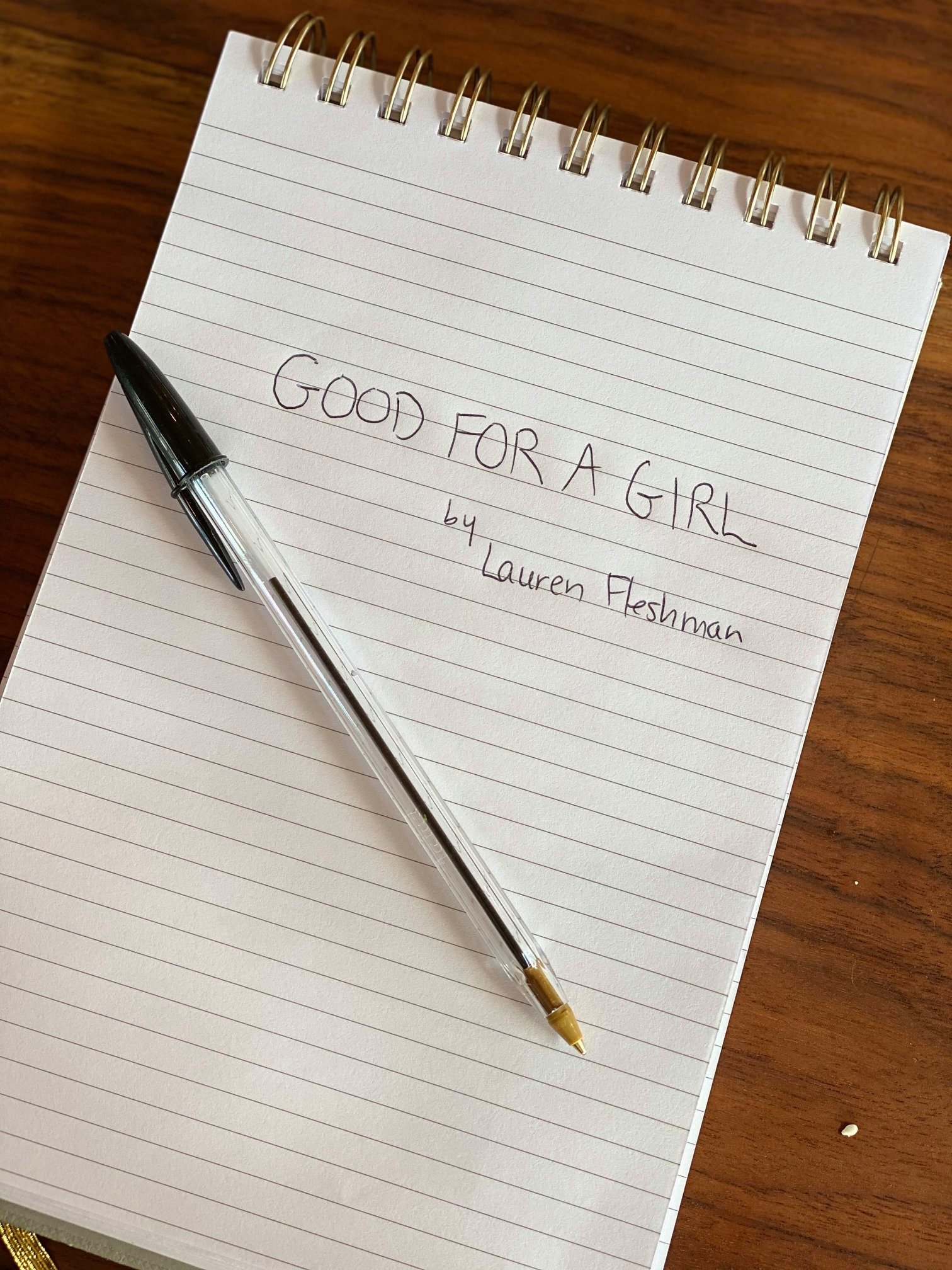
Lauren Fleshman - Highlights
5 NCAA championships at Stanford
2 USA Outdoor 5,000 meters championships
15-time NCAA ALL-American
Former member of Nike’s Oregon Track Club Elite
Brand strategy advisor for Oiselle, a fitness apparel company for women.
Co-founder of Picky Bars, a natural food company.
Her writing has appeared in The New York Times and Runner’s World.
Lives in Bend, OR with her spouse, triathlete Jesse Thomas, and their two children.
Episode Timestamps
00:00 - 04:16 - Welcome and Episode Introduction
04:24 - 1:09:16 - The Meat and Potatoes - Episode 249: Good for a Girl - A Woman Running in a Man's World (Interview with Lauren Fleshman)
Purple Patch Video Podcast and More
The Purple Patch Center is Open - Learn More and Schedule a Visit
Purple Patch Coaching Consultation
Purple Patch and Episode Resources
This episode is sponsored by our collaboration with INSIDE TRACKER. Inside Tracker and Purple Patch - Receive 20% off their services with code: PURPLEPATCHPRO20
Ask Matt Anything - Leave a voicemail question for Matt
Learn more about Purple Patch Squad High-Performance Training Program
Join Bike Squad - Don’t just exercise and work out; learn to train with our structured online cycling program
Join Run Squad - Increase your running performance through our progressive, multi-sport approach to running
Learn more about Purple Patch Fully Customized 1:1 Coaching
Learn more about Purple Patch Strength Programming
Stay Up-to-Date with Purple Patch News and Events
Full Transcript
Matt Dixon 00:00
I'm Matt Dixon, and welcome to the Purple Patch Podcast. The mission of Purple Patch is to empower and educate every human being to reach their athletic potential. Through the lens of athletic potential, you reach your human potential. The purpose of this podcast is to help time-starved people everywhere integrate sport into life.
Matt Dixon 00:21
Guys, we are kicking off season five of the Purple Patch Podcast today. And we have got a storming episode in line for you. But there is a way that you can kick off your journey of performance over the course of 2023. And the best way to do that is have a little look inside. Yes, by assessing your biometrics and combining it with the recommendations and insights from the team of experts at InsideTracker, you will get precise focus on the elements that you should work on so that you can yield optimal returns on all of the effort that you put in. We leverage it with all of our athletes at Purple Patch, and you can too, all you need to do is head to insidetracker.com/purplepatch. That's insidetracker.com/purplepatch, and you're going to find everything that you need so that you can take a journey inside. Use the code Purple Patch Pro two zero, that's Purple Patch Pro 20 And you get 20% off everything at the store. Alright, it's a great one. Today we welcome Lauren Fleshman. I hope you enjoy the show.
Matt Dixon 01:32
And welcome to the Purple Patch podcast as ever, your host, Matt Dixon, and I get to welcome you to the first episode of 2023. It is our fifth season. Goodness me. It's been quite a journey so far. And so we thought to ourselves, how can we launch this real kickoff to the year this celebratory first episode? How can we kick it off with something special? Well, guess what? We're delivering because today is, well, it's a special one. It's a super one. We have a very special guest on today's show. It is Lauren Fleshman. Lauren is a former professional runner, elite running coach and a thought leader around all aspects of sports performance and development. Now I've known Lauren for a long time, because I was lucky enough to coach her husband, Jesse Thomas throughout the entirety of his professional triathlon career that lasted 10 years. So, yeah, as sort of families we got to know each other pretty well. I was there for so excited to welcome her after being fortunate enough to get my grubby hands on her new book. The title of the book, Good for a Girl. Folks, this book is important reading. It's written as an autobiographical memoir and you don't need to be an athlete or runner to be very quickly pulled into the story. But as you start to learn what Lauren went through, the broader messages become more powerful. Because through her own story, Lauren displays the challenges that all female athletes face while competing in a sport that is designed by and ultimately for men. Honestly, this book, it blew me away, and in fact, it forced me to reflect on my own journey as a coach, and I think it will have a very similar stimulus for you. I really believe that this is required reading if you're a parent or a relative of female athlete, if you're a coach, if you're a fan of the sport, or of course, if you're an athlete yourself. I'm incredibly excited to welcome Lauren to the show. And what emerged from our discussion, as you're just about to hear was even more intriguing and powerful. I cannot have hoped for better. Yes, we go through the book and we discuss that but very quickly, we transition on to try and get really applied for you folks, the listeners, athletes, parents, coaches and beyond, you are going to enjoy this one. Now remember the book is out January 10th and you can purchase it anywhere that you like to go shopping for all of your books. Of course you can find Lauren as well at laurenfleshman.com, and I think it's really worth a follow. I proudly tell you, folks, this one is a special one. I think you're gonna love it. It is time for the Meat and Potatoes.
Matt Dixon 04:24
Yes, folks, it is the Meat and Potatoes. And as promised, as mentioned in the introduction, we have a goldie today a great one. And I'm excited, Lauren, to welcome you to the show. Thanks so much for joining us.
Lauren Fleshman 04:37
Thank you. I'm thrilled to be here.
Matt Dixon 04:40
Well, we have - we're excited, we're going to dig into the book a little bit but for for some of the audience that don't know we've sort of lived in some bizarre ways sort of a parallel life. We've had a different perspective anchored around a person that's pretty central in our life. We've known each other for a long time, but I was lucky enough off to coach, your husband, Jesse, the second best athlete in your household for 10 years all the way through his professional career. So we sort of lived his athletic journey, and I have got to be a little bit of a voyeur for through your journey for quite a long time. Now there Yeah,
Lauren Fleshman 05:16
It's true. Same. And I mean, as someone who is a coach myself, I, I never had to step in and intervene, you know. You always seemed to have it all right. Not that I'd want to do that anyway. But I learned a lot from you via Jesse as well. So yeah, it was, I'm really glad we have that history together. It's fun to be back in this context, talking about women's sports and reflecting on coaching and athletes and all that stuff will be good.
Matt Dixon 05:47
Exactly. And I hope that we can - I'm sure that we're going to dig into quite a few rabbit holes today. But what we are not talking about today, despite him probably wanting us to do so is Jesse, we're going to talk about you we're going to talk about Good for a Girl, your book and a book that I thoroughly enjoyed. So if you're ready to dig in, shall we do this?
Lauren Fleshman 06:05
Yeah, let's dig in. Let's do it.
Matt Dixon 06:08
We're not gonna start pretty high, pretty broad, and I want to pull out something from the introduction that you wrote, that captured my attention, which you you said that this was a love letter to a running life. And I know that writing any book is an endeavor, it's a journey, I also know that this was a real journey for you. And so I guess at the highest level, what was your motivation for putting pen to paper and, and creating Good for Girl.
Lauren Fleshman 06:38
If I hadn't had as strong a motivation as I did, I certainly would have quit multiple times. But it truly is a love letter to the running life in that sports has completely revolutionized my life, and that of millions of women, I mean, millions of people, you know, you oversee it in a coaching capacity every day. But for -- my life is dramatically different than my mom's who didn't have a chance to play sports at all. And, and, and so I'm very aware of all of the amazing, good that sports participation can bring. And it's it was this feeling of this theme that I experienced throughout my life of the ways that it fell short of its promise, due to very preventable in my opinion, things like the obstacles, like mistaken frameworks of thinking about things around the female body, these things that, when they're added up, are stealing the joy and promise of sports, optimal gifts that it can give. And, as I write also in the book that, you know, millions of women are carrying around these incredible memories, from their time in sports, but they're also carrying the invisible wounds of their sport experiences. And, and I'd like to minimize the wounding and maximize the pleasure and benefits.
Matt Dixon 08:00
And one of the things you talk about is sort of your your own personal experience of being an athlete navigating an athlete, and you talked about the structure of sports been sort of designed for boys for men by men. And can you just expand on that a little bit?
Lauren Fleshman 08:20
Yeah, absolutely. Well, the sports systems that we have today were designed, as you said, by men, for men and boys, women were excluded until pretty recent history, really, I mean, Title Nine is just barely over 50 years old, which federally mandated equal access for women and girls to sports, in federally funded institutions, like high schools and universities and things like that. And so it's fairly recent history. And while we fought very hard to get access to those spaces, we did not have any say, in the creation of those spaces of the design of those spaces. And there was an assumption that were that female bodies and male bodies are the same. And therefore, we should plug into what already exists. The male default norm is the definition of excellence in all the spaces that were created by men for men and boys and, and so there can be this tension of entering those spaces needing to adapt to the norms. But now that it's been 50 years, since Title Nine was passed, we actually have enough data to see that females and males are not thriving equally in these purportedly equal environments. And that's what my book explores is what happens when you have a presumption of equality you placed into this space that isn't built for you and you're kind of cramming a female body into a space that wasn't built for it. And there's these predictable friction points that come up over a woman's life from puberty onward. That is so clear once you once you see it, that you can't unsee it and once you recognize the collective harm of all those friction points, there can be the motivation to change it to reshape women's sport in the image of the female body and the needs and, and design of the female development, wave and puberty and all those things so that we can thrive.
Matt Dixon 10:19
Well, it's funny because even hearing you speak, I was really surprised when I began reading the book because as you sort of outline that, as I entered the book, and I opened up the first pages, what I was anticipating reading was some form of perspective, from your experiences as as an athlete as a coach as a thought leader, to lay out the landscape and say this is it and almost a manual of sorts, like edging towards a textbook, if if you might want to say that. And within two pages I was like wow, this is so different than I anticipated, because what emerged was a deeply personal autobiographical memoir. And did you always anticipate that you were going to start the book and and complete it through that lens as something that's a memoir to try and get to that the end goal that perspective?
Lauren Fleshman 11:14
I did, I always knew that there would be a mix of narrative voice, expert voice, you know, just connected to the research, and then soapbox voice, which is like that? How should I put this all together? And what do I think should happen? I didn't know what percentages of each I would have how it would shake out in the end. But I knew that the person the memoir, was an essential part of it. Because what changes hearts and minds on a deep level is story that you are a pulse to a real person. we're social creatures. That's how we're wired, we truly feel empathy and compassion, which is what motivates change, you need to be able to walk through the world in someone else's shoes. And that's why books are so powerful, whether they're fiction or nonfiction as you get to walk in someone else's shoes, they see the world differently after that you're changed. So when it comes to like the issues in this book, there's actually plenty of scientific papers, there's still a massive gap in research on female athletes versus males. But for the issues that are central to this book, there are current modern leaders producing incredible work, and journalistic papers and all that those aren't accessible to everyone, right? They're in academic circle, they're written in a particular restrictive way of language and style for academic writing. What I feel, I don't think though, that incredible work can have its biggest impact until it's brought to life through story. And so what I felt I needed to do was take readers through my eyes, take them into the rooms that I have been the things that I have either experienced or seen. And so they can walk in my shoes with me and see how all the issues connect. And then you have this full picture that can change a framework that can like raise consciousness in a different way than any short news story about an abused athlete can or an eating disorder blog could or a stress fracture analysis paper could write or REDS research could?
Matt Dixon 13:23
Well, I want to hone in on the word accessible there because I think that's really important. Firstly, what you undertook I want to underline that is incredibly difficult to get right. And you've probably saying yeah.
Lauren Fleshman 13:39
It nearly killed me, it is so hard.
Matt Dixon 13:42
Because stories storytelling is not an easy task and but accessible is also right. And I think that that that's really important as well. We spoke before and I talked about this where you know, there are stories that are powerful and can capture our imagination and can rise us and the one that sprang to mind when I chatted to you before was horror, Laura Hillenbrand's book Unbroken that talks about the story of the US Italian runner, Louis Zamperini and you know, he was surviving in a life raft, after falling out of the sky and in his plane, int the Second World War, et cetera, and and it's incredibly compelling. But I couldn't, you know, in awe of this guy's survival instincts, but I couldn't put myself in his position and really understand and yet when I, I think what you managed to do in Good for a Girl is create a memoir that was unmistakably and uniquely yours. But as I read it, as a former collegiate athlete, myself, I thought this could actually be a narrative or a story that any one of my female collegiate teammates could have told, like their own version, their own similar story. And so it feels like this story and I guess it's the intent of the book but it goes well beyond you or I would even say even running. I think it extends well beyond that.
Lauren Fleshman 15:06
That was a goal. And I was really inspired. Like when I first started thinking about writing this book or writing a running book, I thought, Man, I would love it. If I could write a running book that was sort of like how Seabiscuit was to me. Like, I don't care about horse racing, I was never interested in horse racing. But horse racing was the mechanism by which we learned about the depression and the, the conquering of the human spirit and class and all these things. And I didn't develop an like a attraction to horse racing after the book, but I was changed by the book. And I thought, wow, I'd love to read more like running books that that can do that. And then of course, over time, there was a different, more specific purpose that needed to be accomplished with this book, which was to change, try to change women's sports in some way and change sports overall, if I could in some way, but then I still at the heart of it wanted this book to be to be a literary memoir that that extends beyond the circumstances itself. So it's, it's nice to hear that you feel it did that. And it's a tricky thing to do, I think, once you start adding in bits of research and data and soapbox voice, that could really distract from that. And so that's why getting the percentages just right, of where will I insert research and for how long and never getting too far away from the pulse of the story. And you're like, yeah, my athletic story is uniquely mine, but it's really just full of like, dreams, goals, failures, victories, redemption, grief, all of those things, it just happens to be through my running life.
Matt Dixon 16:47
Yeah, it's another sort of thread that I want to tug on as well. And I'm gonna, I'm gonna talk about the power of words a little bit, something that is obviously discussed in the book. And you mentioned earlier the power of sports and obviously, I'm a huge proponent of that, yeah, the benefits of a sporting journey for everyone and, and so obviously, was, was engrossed by the empowerment of your own journey. But I, I found as I, as I read, Good for a Girl, I, almost myself was conflicted, I felt like I sort of paused and found myself in reflection of my own actions, my own words, particularly as a coach, I would say, and I want to tell you a story of words matter. And this really slapped me in the face. So you know, that I coach had a very successful professional triathlon squad. 50%, male 50% female, I'm very proud of my record of developing athletes and, and having success, at least, performance results in in both men and women. And that was, that was fantastic for me. And I've had some fantastic relationships out of that experience as a coach. But as I reflect, and this might seem like a small thing to the audience here. But amongst our female athletes, we never talked about periods at all. In fact, they what the athletes -- but we were quite open with the dialogue around the fact that the athlete was having their period, but we had a code word, and it was or a code phrase, and that was that their friends were visiting. And it was just a very cute fun, sort of inside the code. And what I realized, as I was reading this is, it's quite interesting, actually fostered a mindset, culturally amongst the group that created some form of tension or mystery, even extending potentially to shame to this thing that is perfectly normal and essential and part of being a really healthy athlete and in long term performance but I somehow as a coach inadvertently, subconsciously, unconsciously mystified this thing. And, and I think that that's, that's just one small example of many issues where I thought, goodness me, I really could have done that better.
Lauren Fleshman 19:11
Well, I had the same experience writing the book of like, wow, I really screwed that up, or, well, I really had that wrong at this stage of my life. And I tried to do my best to be honest about that along the way to model to model imperfection, and the process of screwing up learning, you know, what is it? Know better do better. And, and that is what's going to be required. I mean, I wrote this book, there's lots of opportunities for people to feel uncomfortable or reflect on their words in the past or ways they've spoken to themselves or others about their bodies, about the periods about whatever it is about excellence. I mean, there's just so many things and I want people to think about their words because it does sound like a small thing when you pull one thing out. But it's the collection of those things over time, that causes the most harm. And so much of the female athlete experience because we were plugged into an existing male structure and success is defined by emulating the male experience as much as possible, right like running like the guys competing like the guys having the most steady performance trajectory possible, which is way more correlated with male testosterone and the development path of males. So we're already in this space. And so anything that deviates from that -- breast development periods, mood differences, emotionality -- those things are not male, and therefore have been sort of marginalized or made taboo or have euphemisms around them. It's like finding an uncomfortable way to manage difference in a sport culture that hasn't learned to embrace and celebrate sex based difference. And that's really nobody's fault. That's just the water we're in. That's the thing we've all inherited. And so of course, all of us are replicating some of these things, to some degree, good on you for talking about periods at all, even if you weren't using the word that as you know, from the book, like I think it was 87% of female athletes in this study, did not talk to their coaches about their period. And 80% of coaches in running at least are male. And I'm pretty sure that trend of mostly male coaches extends beyond running. So yeah, it's a you're in good company. And and it's also a great example for you to bring up and that you could easily read that part of the book and get defensive of like, Hey, okay, I'm doing my best here, I'm doing better than most people, half my squad are women. And I do talk about periods, at least some and whatever. But to be part of being like a good coach is always looking for ways that you can improve and being open minded to, to new information. And so I'm glad you brought that up. And I think it's a good modeling for how I hope other people read the book.
Matt Dixon 22:07
Yeah, I want to dig into something you talked about there, which is less of the storytelling side. But I want to come back to the structure because I just want you to, hopefully hold my hand down a rabbit hole here for a second, because you talked about linear progression. And I think this is really interesting. And maybe we should just spend a couple of minutes on this where (inaudible), when you think about sports, going through high school, for the upper end of athletes that are doing very successfully, maybe they go on and then compete in a sport in college, and they go through, and the the way that we tend to think about performance, and we think is getting faster, faster, faster, stronger, stronger, stronger, better, better, better, whatever you want to say. And it's relatively linear. And in many ways, one of the things that you sort of really highlight in the book from a physiological normal standpoint is the train is going in in a different direction for a developing female athlete that maybe gets into a sport when they're 11, or 12, and then goes through 13, 14, 15s and then 18s, 19s, 20s -- can you just very briefly sort of really tie the thread between linear progression expectations and what the female athlete is navigating.
Lauren Fleshman 23:24
Yeah, absolutely. The, you know, at 12. The research shows us that there are no sex based differences in performance, there are still some, some differences that can occur mostly from socialization, like less girls are encouraged to, for example, play or whatever. But there are female athletes that hold records in the 10, 11, 12 categories that are faster, better, higher, stronger than their male peers. And the sex based differences kick in when puberty creates two separate, embodied experiences. And our sports systems are built around a 13 to 22 year old -- the sports systems we invest heavily in as a country in the United States and beyond is 13 to 22. And that makes sense when you think about the male body because the way male puberty works with testosterone and androgens is you, you receive this influx of hormones that is immediately beneficial to performance improvement. So you will like kind of be think about just like the the hormonal environment is such where you get more juice out of every squeeze than your female peers do during those years. Testosterone is a performance enhancing drug, right? It's illegal to use. And a lot of female athletes who have been popped for drugs, it's because they're using this male I mean, women have testosterone in their bodies, of course, but they're using it to emulate to mimic a male bodied experience which to get a performance advantage. So this male idea of okay we're going to -- nhigh school is between 13 and 18 and whoever's the best at 17 and 18 years old is going to be rewarded with a scholarship to a university, which is a life changing incentive and reward. That makes sense for male puberty on average, 17 and 18 is a great age to kind of make these predictions about who's going to be the best at 18 to 22. And for the female body, it's like completely not predictable. Yeah, because
Matt Dixon 25:28
It's literally going in the other direction.
Lauren Fleshman 25:30
It is, at like 17 is the age when female athletes and the research, their performance, average performance improvement goes down to like 1.2%. And that's if you're, I mean, that's, that's barely noticeable. And that's the average. So there's plenty of female athletes who are going through a plateau of total plateau, or even a dip, those things are temporary. But our puberty environment creates body changes that are not immediately beneficial to performance, when given a few years to adapt to them, and build the ligaments and tendons and bone strength, and all those things that can accommodate these changes, you're 100%, your best strongest body will be your woman body, we just have this different way -- I call it a female performance wave of getting to the place where we're adjusted to it. And the problem is because this different physiological path is unacknowledged and the system is built on a male default. These differences in a female bodied experience are greeted as cult, like the culture around them is one of what a bummer. You know, puberty is the one injury a girl can't come back from is a quote that a coach has said or many coaches have said, it's viewed as like a career ender, which is a completely premature conclusion, right. And so because it's not acknowledged, valued, educated on the girls themselves, view it that way that they it creates this war against your body during a time when something very exciting and monumental is occurring that deserves its own space and respect so that it can occur so that you can get to the other side and be in this strong, powerful woman body. And because we create this environment that is not hospitable to these changes. That's why we have eating disorders or just dis disordered eating in a subclinical level. Amenorrhea when you're not getting your menstrual cycle, you're you're depriving your body of bone building, you're actually like stealing from your future self, and not allowing yourself to have like a joyful, embodied, present experience in your life, you're trying to be something else, or you feel there's something wrong with you. And there's nothing wrong with you. So that's like really what drives me in this book, you can see I get elevated, because I think about like, the harm is is about so much more than stress, fracture, increased stress, fracture risk, or eating disorders, all those things are very important. It's it like the thing that kills me the most is imagining millions of girls having a story about themselves, that is simply untrue. And if they just had a slightly different environment, that respected difference, they would be having a completely different experience in sport. And therefore, a better view of themselves sport could work its magic on them as it as we know it can.
Matt Dixon 28:34
And, you know, you talked about stealing from the future self because that that's in let's just generalize on age 16, 17, 18 is when the demand I want to get, you know, on the upper end, I want to get the sports scholarship. So the demand is leaner, lighter, faster. But what's healthy and important for the athlete and appropriate from a physiological standpoint is to retain a little bit more fat at that time and, and, and so you can it's very easy to see how corrosive behaviors driven by external forces and internal and everything else that's going around that that occurs. But the if we can get female athletes through this chapter, this very normal chapter and they emerge into the early middle 20s that is when the future self can be the most resilient, the most strong, the most
Lauren Fleshman 29:31
Absolutely.
Matt Dixon 29:32
and and but all of the behaviors set in stone in this chapter are absolutely to your words to steal your words stealing from the future self.
Lauren Fleshman 29:46
they really are it's It's remarkable when you think of it that way. Really like the impact. It's, it's motivating for me to try to continue there's certain things you're not going to be able to change, right we can't change when scholarships are awarded, that's always going to be a massive economic force. But it also only applies to a small percentage of people. What I do also tell in the story though is that, what is the cost of going for that D1 scholarship if it requires harming your body, in the short term, where we have the research or you look at like the number of athletes who have won the footlocker national title, which is called something different now, there's, like, I don't know, maybe only even one female athlete in the history of the event who's gone on to be like an NCAA champion, whereas there's like, a much greater number of boys that have, it's, it's like, if you expose that information to girls of that age, I think that they're, if you can appeal to their longer term, vision of no I don't want to just be good right now, like, of course, I want to be good right now, too. But like, not at the expense of being able to run later, right, I want to be able to keep doing this. And, and so really like, understanding there are lots of different ways to compete, to continue your athletic career at a college level and during college ages. And at that you that are like aligned with your long term development. And I love telling those stories of the late bloomers who make Olympic teams that that didn't really accomplish a ton in high school and college that weren't these blue chippers. And that's so common on the women's side, you just have to let yourself get there.
Matt Dixon 31:28
And a lot of the - the last little nail on on this piece as well as we're not ultimately just talking about the razor's edge of elite performance here. This goes to the the actual purpose of what we are trying to get out of sports globally anyway. And it's not just world class performance in sports scholarships, it goes so far beyond that.
Lauren Fleshman 31:48
Yeah.
Matt Dixon 31:50
You know, I think that's important for us to remember.
Lauren Fleshman 31:52
It's really important I mean one of the main reasons women fought for access to sports during the 70s and before was that sports is a place where women can use their bodies in a way that isn't sexualized. I mean, so much of our culture, places value on a female body based on how it looks how it appeals to straight white men, or the dominant culture with the power, right. And so you you grow up as a woman living with like a dual awareness from a very young age. How do I feel in my body doing this? And how does it look to the people that with power, who are in general, like the male gaze, you learn to live with a male gaze, always present. And sport, in theory can provide this arena where you can escape that. You have these female spaces, you are asked to use your body in ways that frankly, like are pretty far from sexual, and look gritty and messy and sweaty and like, and there's a scene in the book where I wrestle with -- after winning my first state title, and I see my face on the front page of the sports section -- and it looks so different than what it felt like on the inside. And I saw it through the male gaze. I didn't have the words for it at the time, but I saw it and I had this teeth gritted thing, it was decidedly unattractive. But it was it was sport, you know. It was sport? And then how do you balance - how do you deal with that combination of feelings in a world that does clearly value women based on looking attractive? It's like another element, you have to wrestle with.
Matt Dixon 33:37
What with this, this show could go I'd go down that that pathway for the next two hours, but but I want to be efficient with your time. And this, this show is all about education. That's what it's anchored in. And so what I what I hope to do in the last section is to try and get a little bit applied, and draw some lessons out of this. And I paused before sort of lining up the questions and thinking who the who are the constituents of the book in many ways, there's the athlete, obviously, the story told through your eyes, there are the relationships that you have. And we can categorize those all off with your parents, relations teammates, all highly influential on your mindset, your actions, your perspective. And then of course, me, the coaches. And so my hope is that in the last section, we can try and supply a little perspective, and maybe an action per group. And so I want to start with parents first because I think that's really helpful. And if we want to extend going on to obviously this relates to friends, aunts, uncles, teammates, etc. Then we'll go into athletes and then we'll go into coaches to finish. So hopefully we can start to get a little applied.
Lauren Fleshman 35:00
That sounds great.
Matt Dixon 35:02
Here we go. All right. So lets think about parents throughout the book, it was a key driver, as I mentioned, of your of your mindset and actions and their relationships, I think is so, so important. Can you offer your perspective now that you've sort of finished with your athletic journey, and you've finished with this book, on the role and influence that we can have as parents or relatives in the journey of a female athlete?
Lauren Fleshman 35:35
Yeah, there's so many things you can do. So it's going to be tough for me to narrow it down. But I think one just kind of having the understanding of the things we've talked about so far, that there is a difference and a female embodied experience in sport during ages 13 to 22. And beyond really like, but it's a different journey. And that the default norm has been defining excellence based on a male norm, and then determining how we feel about ourselves based on how well we did that or not, that's going to be what most of society is doing. And so what you can do as a loved one and influential person and in this person's life is to, to not do that, really to bring awareness, educate them about it, normalize the - a different, equally valid path, and stay excited about development and puberty and becoming the idea of becoming who you are going to be. And versus fearing what's going what it will take away. And I just think that's so critical that you that you bring that point home, and, and that the way and then you also make space for the complicated, tricky feelings that this athlete is, is likely to have, when the structure and scaffolding of the sports environments they're in is not predominantly telling them that, that they will need they will watch, they will get passed by other teammates who are on a different puberty trajectory than them in that season, they will have a season where they work so much harder. And their coach has said, You get out what you put in effort equals results, but their lived experience is that they're working harder every day, and they're not getting better that season, or they're even getting a little bit worse. And that hurts, that's hard. Getting your butt kicked by some random, pre pubescent freshmen on the team that just started running, like those things are difficult to deal with. And they're going to hurt. So holding space for those real feelings, making space for them. And and then when once they've regulated around that and feel heard continuing to, to paint the large picture for them of I'm so proud of you working through this, you keep showing up. That's the most important thing. Keep showing up through these difficult times show up for yourself, show up for your teammates, and, and ride this out, ride this performance wave out. Promise your strongest lifetime body is on the other side. And uh, just helping I think another thing that you can do is focus on -- and Matt, you talk about this a lot -- like the athletic journey, taking people on an athletic journey. And you can be the voice that continues and you start young start from when they first begin competing, if they are that pre pubescent freshman beating all the seniors, you need to have this perspective too -- don't put spend too much energy focusing on how awesome their win was, or how fast their time is how they compare to other people, because that's not a sure thing that that will continue. Focus on the bigger elements of the journey. Their sportsmanship, their ability to like, learn the skills and execute race plans and be gritty and have tactics and those things, all of those elements can be consistently carried through their entire career no matter where they are on their performance wave.
Matt Dixon 39:08
And also correlated to their journey of life as well of course.
Lauren Fleshman 39:12
Absolutely.
Matt Dixon 39:14
It's, it reminds me of your back in the day, um, and I'm sure they're still available, but I think it was your believe journal where you I think you talked about the spokes of a wheel and having the different components of focus whether it's tactics whether it's managing adversity, whether it's being a teammate. Components of a broader spectrum, rather than -- did you qualify? Did you win did you get faster?
Lauren Fleshman 39:37
Yeah. Well, that was the motivation to create that training diary was how can I create a way to track your training over the course of the year that keeps that it has chapters each month that ground an athlete in this holistic perspective of what are all the various elements to see if you're improving. You may not be improving as far as time or place goes this year, but are you improving your your knowledge of nutrition in recovery and ment -- your mental game, all these other things you can, you can improve 10 out of 12 of them. And it's unreasonable to improve 12 out of 12 at all times.
Matt Dixon 40:12
For a listening parent, or loved one, who's who really is driven, like, I want to be a positive advocate, a supporter of the female, particularly the younger female athlete, what -- can you can you identify, and this might be tricky to do, but that the really key language or behavior that they should aim to develop? And so we've talked about it. And what I'm thinking about here, is I often talk to parents about the car ride home, and how important that can be from a practice or from a competition, you know, from a race. Is there some tactic or an element that you can really help? And I guess it's in in language choice?
Lauren Fleshman 40:52
Yeah, I think that one thing to avoid on the on the negative side, avoid talking about athletes bodies, that is a, they're listening and pay attention, how you talk about your body, those things are being internalized. And, like a positive feeling about one's body that they move through the world and is just such a gift you can give somebody. And so as a parent, you may need to work out some of your crap. Let this motivate you to work it out. From the positive side, I think like, Did you or you showed up? Like, I really think just coming back to this idea, like, Did you do the best you could with the tools you had on the day, on the day you got? Right? Like, if you can do that, if you can get really good at doing that your results may vary. But you are being consistent, you are consistently learning to do that in all circumstances. And sport, like you said earlier gives you this practice arena for life. And you don't need to be perfect. You're not going to knock it out of the park every time. But that's the thing you come back to did you show up? Did you do your best? And if the athletes like No, not really, I kind of kind of phoned it in at two miles because I was discouraged. Well, that's a good conversation you can have like, look, what was discouraging about it, okay, like, let's talk about it. Because in the end, the better you get at doing your best in all circumstances, then when you get your good day, when your good day shows up, and everything clicks, you're going to be able to take advantage of it, you're going to seize it like like you've never done before.
Matt Dixon 42:25
Well, what you mentioned there, I phoned it in after two miles, that's an opportunity for growth. And suddenly you're engaged in solutions.
Lauren Fleshman 42:32
Yeah,
Matt Dixon 42:33
It's like actually helping you know, your kid navigate this. And we want to help in, in trying to find solutions across all of our lives.
Lauren Fleshman 42:42
The phoning it in is a really common female athlete experience when their body is changing, and they stopped getting the positive feedback, where when that when that refrigerator magnet wisdom of you get out what you put in starts to kind of like fall apart. And then you lose your motivation. And so I think it's common to just like I think a really helpful thing to talk to an athlete in that very likely scenario about is, well how does it feel to do that? How do you feel now? How did it feel in that last mile once you made that decision, and any athlete with you engage on that level is just like it feels bad? It feels gross. I don't like how this feels, and feels so much worse than trying your best and having a poor performance. It's like you kind of just don't like it. And that's the motivator to get out of that. Not like a no time is going to motivate somebody or place is going to motivate somebody to get out of that.
Matt Dixon 43:39
100% How about teammates, because, you know, the mindset and actions is as as is the case I think for almost every athlete you're yours was so heavily influenced by by friends, by teammates by competitors. And so how very broad question here and maybe it's very annoying, but how can our audience be the best teammate to other female athletes.
Lauren Fleshman 44:06
Well for sure. Similar to the parents, stop with the body talk. Don't point out when use language like she looks so fit. Like valuing an athlete's body typing equating what something looks like with what it can do is so damaging, it just wormed its way in. And and so we have to avoid that because body diversity within the body and among the team is going to be a huge part of the female athlete experience. We have to create like a very welcoming space for these changes to occur. And for all all people around us experience in these things. So I think we show up for each other. We expect there to be a performance wave at some point like it's not going to take us by surprise. And when it does, we are going to encourage each other through that time. We're going into work on improving the things that we can that are going well. And, and like if you're a team that shows up for each other through thick and thin, like, that feels so good, you're building something so much bigger than yourself. And that is life. That's what you want to do in life. So we can do that as teammates. So I think also, if you see a teammate that is struggling, that clearly is in a battle with their body and disordered eating, it's really important to develop language to talk about it. And one thing too, that the research shows us is that the sooner you can intervene in an eating disorder, the likelier a person is to recover. And that's challenging in a running space. Because sometimes in the beginning of an eating disorder, an athlete is experiencing a short term improvement wave. And they're getting a lot of positive feedback from parents, from coaches, there's, and the culture around performance makes everybody hesitate to intervene. It's also awkward, it's hard to know how to talk about it. It feels very personal. But eating disorders are the deadliest mental disorder, they have the highest mortality rate, and that the intervening quickly is essential. And then the thing to know is that I learned from Dr. Melody Moore, an eating disorder specialist and clinical psychologist was, you don't want to address it by pointing out their body, like you look thin. Because to the eating disorder, the eating disorder says they noticed it's working. That's like fuel for an eating disorder. So what you want to do is focus on the behaviors, like I noticed that you're skipping meals, I noticed that when we're at a team dinner, you're bringing your own snack and it isn't enough food, you're not fueling yourself properly, I noticed that you're becoming withdrawn and you seem like very fixated on, you know, like something's weighing on you. And then follow up with a question like, how are you really doing? And sometimes that can be enough for someone to start to open up and then talk to a coach if you're concerned. And then you know, beyond that coaches need to develop really a respect for how serious eating disorders are. So but like, as teammates, we need to be able to talk to each other about it and we need to know how dangerous they are. So we don't emulate the behavior because it it can sort of spread socially through team environments.
Matt Dixon 47:25
Yeah, yeah, for sure. It's interesting. Let's shift our lens to the athlete.
Lauren Fleshman 47:31
Yep.
Matt Dixon 47:31
And, and let's talk about athlete themselves and sort of a kick this off as you know, as a as a former male professional athlete, although I always talk about in podcasts that I'm (inaudible) I'm a wonderful example of how to do a professional career very poorly. But I was one of the larger athletes in the field, and I grossly overtrained relative and with some, some pressure from coaches as well, I certainly under recovered, I absolutely under ate, I think I was in red s or REDS, however you'd like to say it, and I drove myself into chronic fatigue, which, ironically, was absolutely pivotal for me, as a coach, you know, it sort of was the grounding for me to say, every one of my athletes is going to have a platform of health, I'm going to set up my methodology where I address my own mistakes and the address the mistakes that I saw. And that was my sort of evolution into coaching. But what your story did was highlight to me just how much tougher a similar journey is to take -- professional sport, elite sport -- from a committed athlete who just happens to be female. And so now that you're on the other side of your running career, what advice would you give to a young female athlete now, who is going to navigate normal chapters of physiological development that all females go through? In a mostly similar environment that you had to navigate? What would be your number one piece of advice?
Lauren Fleshman 49:05
I would say that how you feel about your body is way more important than what your body looks like. And even just hearing your story, man, obviously, you're a male athlete. But I think about how many of those behaviors you pointed out, the driving yourself into the ground, the overtraining, the under eating, all stemmed back to this belief that your body was wrong for the job. You needed to change your body and you just think about how powerful would it have been if somebody told you Wow, you have the perfect body for this? You're actually like built for this as you are? Yeah. Even if you weren't built for this. If you believed you were built for this, how many injuries would you have avoided? How much better would you have been just from not missing any time from depriving yourself and getting injured or fighting it or be and chronically fatigued or whatever it is, you would have reached, whatever your potential was, you would have been more likely to have reached it. Right. And so I think like, that's what I would tell female athletes is don't don't believe the myth that there is the fast looks a certain way, that elite looks a certain way. I think that's true for all athletes. I think it harms all athletes. But I think especially for female athletes, we have barely studied the female athlete body. What we have thought were -- all of our assumptions are based on a male body of what excellence looks like what fast looks like, like as unfeminine as possible, removing all as much breast tissue and hip tissue and thigh tissue as possible to mimic this male form. But that is misguided. There's no evidence for that. Also, there's lots of evidence to the contrary, that there is a greater diversity of bodies associated with excellence than we thought. If you look at the 1996 women's gymnastics team in the US versus the 2021, all of the bodies in 2021, were larger, stronger, more muscular, had more body fat than the bodies of 1996, where the aspiration was a childlike body, an undeveloped female body, that you need to turn yourself back in time, or prevent the development into this woman body. And I love that example. Because the women of 2021 were outperforming the women of 1996. They were they were more powerful, doing like technically more difficult things. And healthier overall as a team. Plus, they were demonstrating personal agency like mental health, valuing their mental health, and it's just better overall. And then also to just think like in a running or endurance specific space, how many times have we watched an athlete win or place very high in a body that doesn't match this mythical ideal, and said, wow, that's pretty good for a big girl, like, imagine what she could do if she lost some weight. These are the things that we hear, when instead, we could choose to look at those examples and go, wow, excellence looks a lot of different ways in a female body, we've, it's very possible that overall, we will have a better stronger career if we allow ourselves those extra couple of percentages of body fat. Just purely physiologically, not to mention the mental load of constantly trying to like perfect some number on a scale or, or exactly how our inner thigh looks in the mirror. I mean, it's just like a huge distraction, and I believe unnecessary.
Matt Dixon 52:35
Yeah, that that mental load, we can't overstate that, in confidence of chasing something that is fabricated, and the distraction around focusing of actually improving your technique or your tactics or being a better teammate, whatever it might be. And it's just a weight. It's an anchor. I mean, it's, it's, it's so powerful. And if that's converted, and evolved to focusing on something that's productive, that's where the power comes from.
Lauren Fleshman 53:08
Absolutely.
Matt Dixon 53:10
The power from within.
Lauren Fleshman 53:11
Yeah, which is the absolute most powerful part of an athlete is when you're connected to yourself and to your inner power, you will do remarkable things, you will be your most powerful self. And we have to be vigilant about what are the things coming and stealing away from that. And the stor-- the athlete story of my career beyond the the the like research and whatever is a story of finding yourself in sport, running helped me find that inner power, right? But then the forces around me, were continually trying to take me away from that. So the story is one of finding myself losing myself finding myself losing myself through the sport. And the world does that to us all the time. And so, but the times, like, there's very specific examples of what we were just talking about where I was fit, I was killing it in workouts, but because of this fixation with my body that would creep in of what it looked like or what a scale should say, I sabotaged a performance, I lost an opportunity. I all -- that was crushing. Especially once I gained the awareness that I was essentially doing that to myself by buying into this belief. And eventually I started to weigh like, even if it is true, which I don't believe it is, that that extra pound and a half or two pounds matters. Even if it's true, the pursuit of that is getting in the way of me actually just figuring out how good I can be or staying healthy. Like and so what's the point?
Matt Dixon 54:44
100% So how about for the young athlete, if you could encourage them you've got young Sally here and you say these other one or two or three, these are the commitments like this is what you're going to make a commitment for yourself as you take on this journey? What would they be? What would the two or three actionable commitments they can be? Maybe it's educating yourself around something or building your resources. Well, what can we what can we parlay to a female athlete? This is what you should do to help you to build your your armor through this crazy world.
Lauren Fleshman 55:23
Wow. Yeah, that's, it's tough. I think that focus on what your body can do for you versus what it looks like. Fiercely protect the your, uh view of self. And fiercely protect your love of the sport, to the degree where you're, you can identify threats to that quickly. Because if you have a belief in yourself, and you love who you are, and you treat your body like a part of you, not an enemy, and you protect the joy of the sport, you will continue, you will redirect yourself back to those places every time there's a threat. And by doing that, you will have the best possible experience in sport, the best results possible on the aggregate, like all of that. And then I'm trying to think if there is one that was or like two things. But I think also just going back to what we were talking about before that the objective is to show up and do the best you can with the tools you have on the day you get. And if you're doing that regularly, you're winning. That's what success looks like.
Matt Dixon 56:36
The, I was going to say that the the one other element I can think of is is understanding education, as well. empowerment comes out of education that there is a blizzard of bullshit out there with everything in the world quackery quick fixes, hacks, et cetera. And the only way to navigate that is to have a very strong filter. And, and a lot of that comes with knowledge and understanding as well.
Lauren Fleshman 57:03
Yeah.
Matt Dixon 57:04
And so if you find yourself with what is actually happening, and likely going to happen, and then what's the role of what you're putting in the body and what it facilitates everything from immune function to recovery, and et cetera, that can be really empowering as well.
Lauren Fleshman 57:19
Yeah, learning about nutrition not from a perspective of how to change your body, but how to feel yourself best how to be your strongest and healthiest. And making sure you're not learning that from any diet resource, that you're learning that from a sports dietitian, no nutritionists, I would say like start get start young people there. And then menstrual cycle. Learning that it's like, this is the thing that half the population has. And yet the myth that basic, the only thing people know about it is it's related to having babies, they don't understand that this is actually their brilliant, like, an incredibly designed symphony of hormones, and body functions that comes around every month, that is responsible for our immune function, our bone density, our our mood, our mental health, all these things, like it's essential, even if you have no interest in babies ever. This is how your body works because you were born female. And you need to preserve that right? and understand that. I think when you have -- when I viewed a menstrual cycle as a baby-maker thing, it was easier for me to dismiss it. Like I'm not really interested in babies and a periods kind of inconvenient -- I lost it, oops.
Matt Dixon 58:36
It's such a well -- I love the symphony analogy. That really resonated with me.
Lauren Fleshman 58:41
But that's why I wrote this book Matt was because there isn't a resource like -- there are so many brilliant papers and things but I wanted to make something that you could give a high school girl, or a college girl or a woman who's already gone through these experiences to help them like, or to give them a way to re-reflect on them, and see them in a new way. That kind of pulls all these things together. And I'm sure people will create better resources that do the same thing. But that's like if I could have a dream or a goal from this, it would be to get it in as many hands of young people as possible. So at least that there will be very, very unlikely it'd be unlikely that things will take them completely by surprise.
Matt Dixon 59:26
Yeah, well, another group that we want to put it in the hands of as well, which is very important is coaches as I, as I mentioned earlier, I read the book as a former athlete, but I think more importantly, a coach of female athletes and male athletes I'll add. But and I'll preface this one thing that I reflected on I'm quite I'm quite proud of my own personal perspective and commitment to trying to facilitate performance of a platform of health globally.
Matt Dixon 59:52
Yes, you're really good at that.
Matt Dixon 59:55
I think it's the right -- my hope is that coaches Look at success through that lens. And that can be expressed in many different ways. We've talked about the power of words, I want to try and help us educate coaches that I think this is required reading for coaches of both genders. But how do you feel coaches can build a more constructive relationship with performance around topics such as female physiology, body composition, that much touted race weight, and and other topics that are deemed sensitive? How should we go about building a better relationship with those subjects?
Lauren Fleshman 1:00:41
I think it starts with recognizing where these quote truths come from. And, and a willingness to consider that they might not actually be the whole story or be applicable to female athletes, or really the modern male athlete either. And that, if you're willing to kind of open your mind, that's like a huge, a huge thing. And I think most coaches are, I think most coaches are humble and are always in pursuit of what they can do better are -- our athletes health and performances like weigh on us, at least they have on me as a coach, they weigh on me at night. And so I think like, there's been this false battle between what's good for someone's health and what's good for their performance that people like to play in of like, well, yeah, I don't know, am I really giving an athlete good advice? If it's a 17 year old female athlete who has gained weight? And I'm not mentioning it? Like, am I really serving them as a coach? And, yeah, the best thing you could do as a coach is to shut your mouth and not talk about the athletes weight, that you should not assume that you know anything about that athletes, biology, physiological development, ancestry, genetic pathway, it is there at -- this athlete is on a journey. What you can do is make sure that you stress the importance of fueling well, fueling the body and getting a menstrual cycle. If if athletes are fueling their body, well, learning kind of sustainable tools around that, and developing a good culture around balanced nutrition and meal timing and things like that, then, and they're getting their cycle, like you're setting them up for their best self over the long run. And that's excellent coaching. And I think judging yourself by how many athletes still love to run, when they leave my program? How many of them are going to leave high school and seek out a club, if they aren't at the level to be recruited or walk onto a team, how many of them will continue to do this for a lifetime? That's, that's your job, really. And then did I create a culture, a team culture where athletes felt like it was safe to change? It was a safe place where my body can change, my performance can change and I'm still seen and valued. I'm still believed in. And that sounds simple, but that's what's really missing in a lot of programs. And I think it's accidental, I think it's like inadvertent on the part of a lot of coaches that think that they're helping by saying PRs are the thing that matters most versus you know, that's one step is to say, direct an athlete's attention to comparing to themselves instead of to others but, but you need to recognize that the female athlete experience isn't, success isn't always going to look like improving your own self, your own time each year. Like even that is a flawed, it's not enough for a female athlete environment.
Matt Dixon 1:03:44
I hope that coaches listening -- sort of listened to that last couple of minutes 10 times, because I don't think I can overstate the role. And you could say the burden, you can also say the opportunity, the privilege that as as a coach of younger athletes, and particularly younger female athletes, you can be a catalyst of an absolutely wonderful foundation, both mentally and physically for the journey of performance. At the same time, you you have, unfortunately, the opportunity to inflict real incredible damage. And I believe like you that the vast majority of coaches want to grow, wants to improve and want to be a positive influence. And so coaching for me goes well beyond training plans, making people faster, et cetera. And if you can ground in purpose, and you can develop a joy of the journey, embrace the journey, one of the Purple Patch sayings that we have, it is the rocket fuel that is going to take the athlete and and ultimately, those with the inner grit, love determination and will flourish and some of those that flourish end up being really darn good as well. Yeah, and you've done your job and in a different way. So
Lauren Fleshman 1:05:00
Absolutely, that's well, that's very well said.
Matt Dixon 1:05:03
Well, I think that's a wonderful place to finish. It's, goodness me, we went deep on a lot of that stuff. My last thing that I just want to say in summary, as I mentioned, as we kicked off the show, I've known you for a long time. And I want to be really honest, and appraisal here, because I think it comes out with our discussion here. But this is an important piece of work. And I know it was incredibly challenging for you. You had to thread the needle of all of the percentage of ratios that we talked about, but I think that you now have an opportunity yourself. And I think it goes well beyond anything that you probably could have imagined, as an athlete, or even as a coach. And, and I'm so proud of you, I'm so happy for you. And I'm excited. And and I hope that this can be a catalyst, one of the big catalysts for evolution and change. So congratulations, and more importantly, thank you for this book.
Lauren Fleshman 1:06:05
Thank you, I really appreciate it, Matt. And I hope that anyone that picks up this book that is working hard on these changes, and does care about these issues, feels validated by it, and reinvigorated by it, it can be it can feel frustrating to be up against a such a nebulous, challenging subject. And so I really hope for that. And I think that the, the ability to change sport to be a better environment for the future for female athletes and male athletes is going to depend on like, basically everybody else at this point, I'm going to do my best. I'm going to elevate everybody's work that I possibly can and I'm going to be in be in the rooms that I can be in. But this is something that we all have to do together. And, and so I hope that the book can just be a shot in the arm, either it serves as an affirmation or it serves as a wake up call, or it serves as an opportunity to reflect and and then it'll be what it'll be.
Matt Dixon 1:07:06
We all have a role. We that's the that's the way I think that's the one thing that's important is this isn't someone else's challenge. We all have a role in this. And, and that's a good thing, because many hands make light work.
Lauren Fleshman 1:07:22
That's the truth. Well said.
Matt Dixon 1:07:24
So I think the magic day is January 10. yeah?
Lauren Fleshman 1:07:28
That's right. January 10, wherever books are sold.
Matt Dixon 1:07:32
Good for a girl. Lauren's website is laurenfleshman.com. We will leave all of the details in the show notes. But really appreciate it Lauren, thanks so much for for coming on the show.
Lauren Fleshman 1:07:42
Thanks. Thank you.
Matt Dixon 1:07:45
Guys, thanks so much for joining. And thank you for listening. I hope that you enjoyed the new format. You can never miss an episode by simply subscribing. Head to the Purple Patch channel of YouTube, and you will find it there and you could subscribe, of course, I'd like to ask you, if you will subscribe also share it with your friends. And it's really helpful if you leave a nice positive review in the comments. Now any questions that you have, let me know, feel free to add a comment and I will try my best to respond and support you on your performance journey. And in fact, as we commence this video podcast experience, if you have any feedback at all, as mentioned earlier in the show, we would love your help in helping us to improve. Simply email us info@purplepatchfitness.com or leave it in the comments of the show at the Purple Patch page. And we will get you dialed in. We'd love constructive feedback. We are in a growth mindset as we like to call it. And so feel free to share with your friends. But as I said, Let's build this together. Let's make it something special. It's really fun. We're really trying hard to make it a special experience. And we want to welcome you into the Purple Patch community. With that, I hope you have a great week. Stay healthy, have fun, keep smiling, doing whatever you do. Take care
SUMMARY KEYWORDS
female athletes, athlete, sports, book, coach, body, performance, female, journey, male, teammates, feel, learning, life, story, women, talk, important, people, memoir

